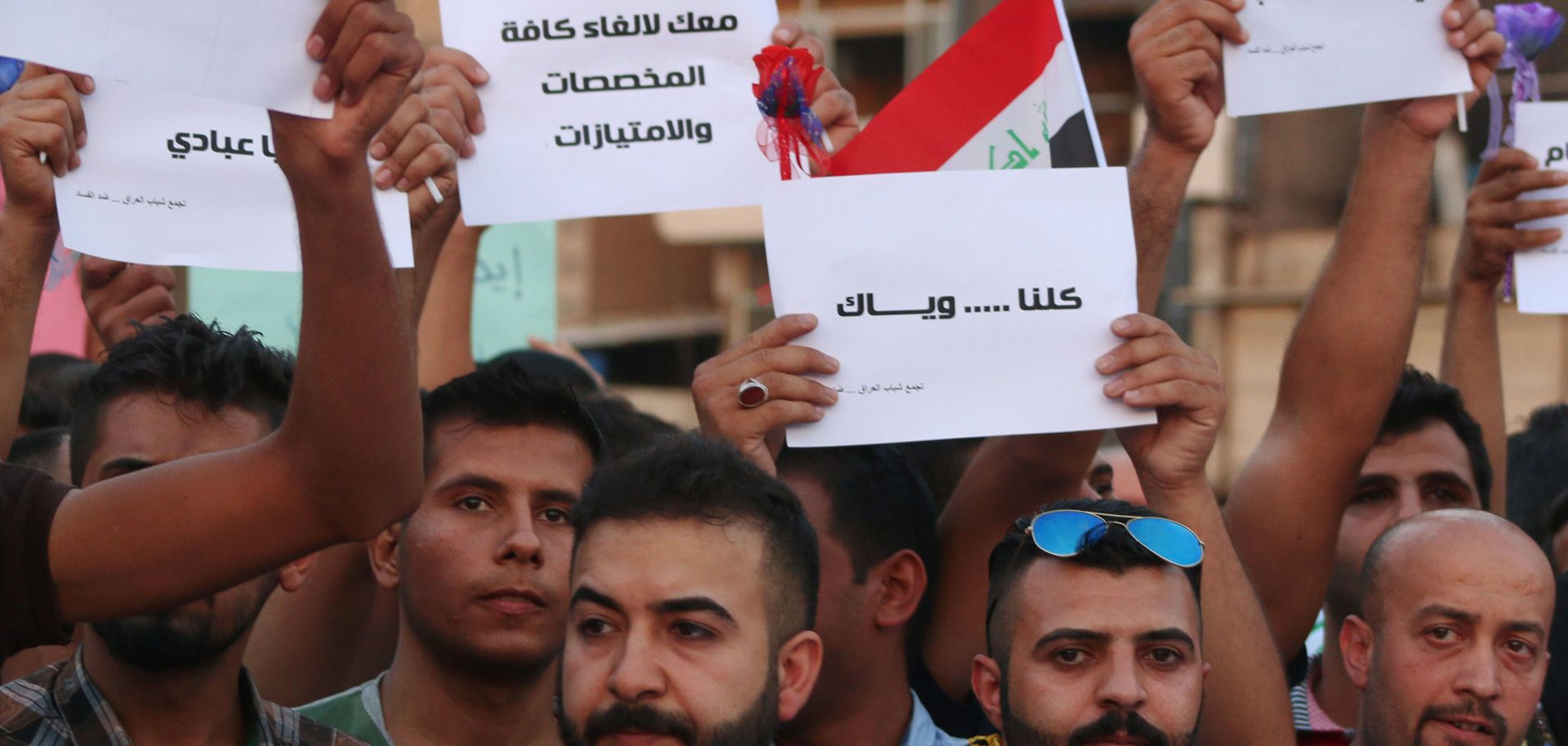ASSESSMENTS
Attempts at Unification Could Divide Iraq More
Aug 14, 2015 | 09:00 GMT

(HAIDAR MOHAMMED ALI/AFP Photo)
Summary
Iraqi protesters are demanding that Baghdad combat corruption. Demonstrations erupting throughout Iraq highlight the government's inability to provide consistent electricity and other public services, but protests have broadened into a show of general discontent levied against endemic government corruption. In response, Ali al-Sistani, arguably the country's most powerful Shiite figure, called on the government Aug. 7 to address the protesters' demands. Two days later, Iraqi Prime Minister Haider al-Abadi presented to lawmakers a complex program of reforms, even promising to resign if significant progress was not made to solve the problem soon. Then, on Aug. 11, a parliamentary majority — 297 out of 328 members — approved the ambitious program of reforms presented by al-Abadi.
The Iraqi parliament's support of the reforms is a shocking display of political unity in a country where sectarian violence and mistrust have become the norm. Of chief importance among al-Abadi's now approved proposal is the elimination of the sectarian quota system that has defined Iraqi politics since the U.S.-led invasion of the country in 2003. Al-Abadi's expediently issued and approved program has created a sense of optimism for genuine change in Iraq, but the entrenched sectarian interests in the country may either prevent the reforms from being implemented or else plunge Iraq into even deeper sectarian conflict.
Subscribe Now
SubscribeAlready have an account?
